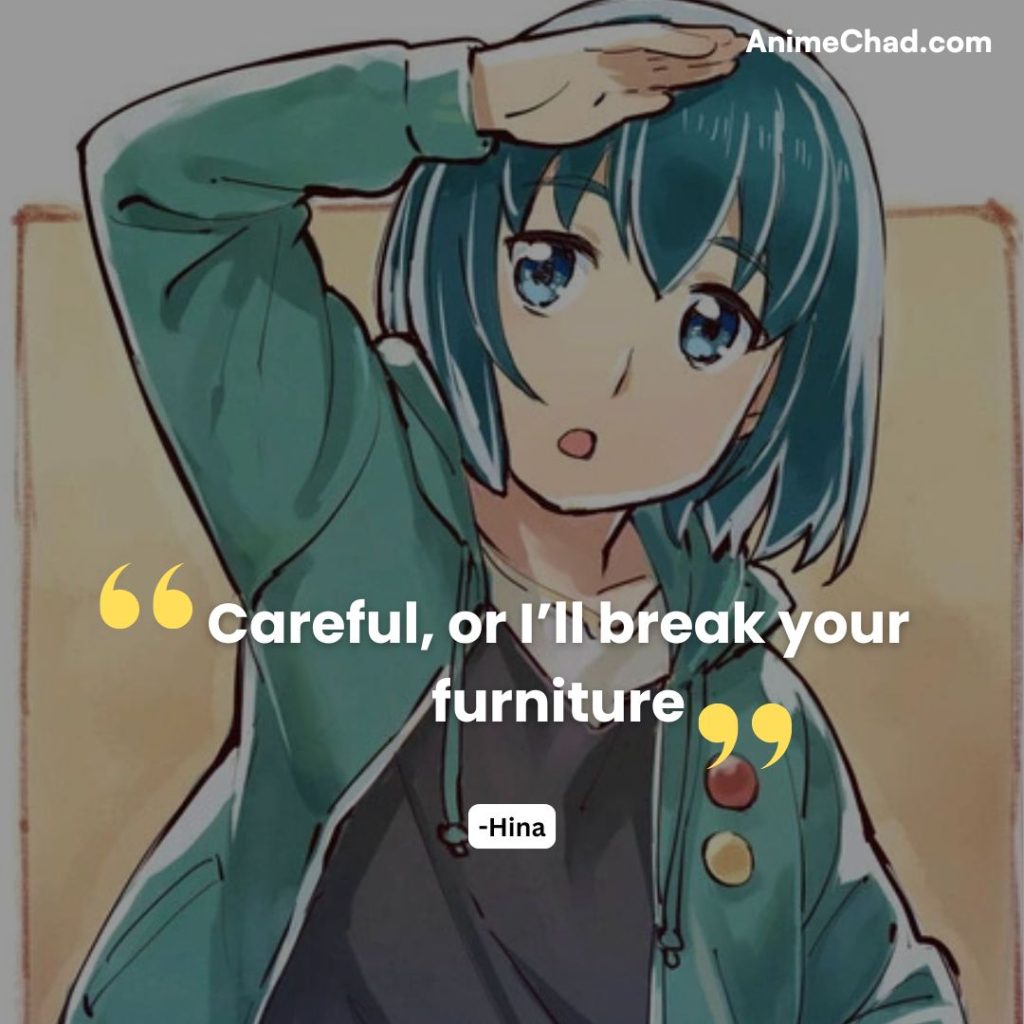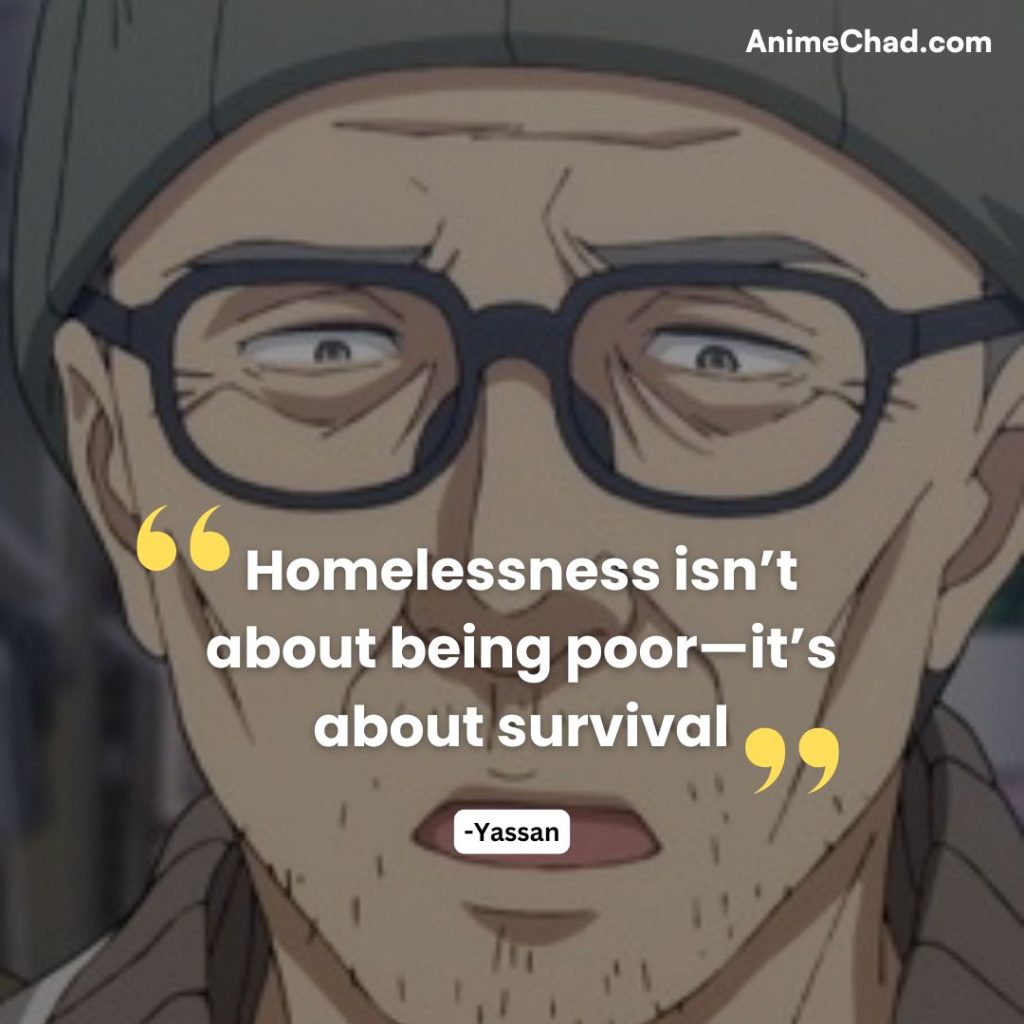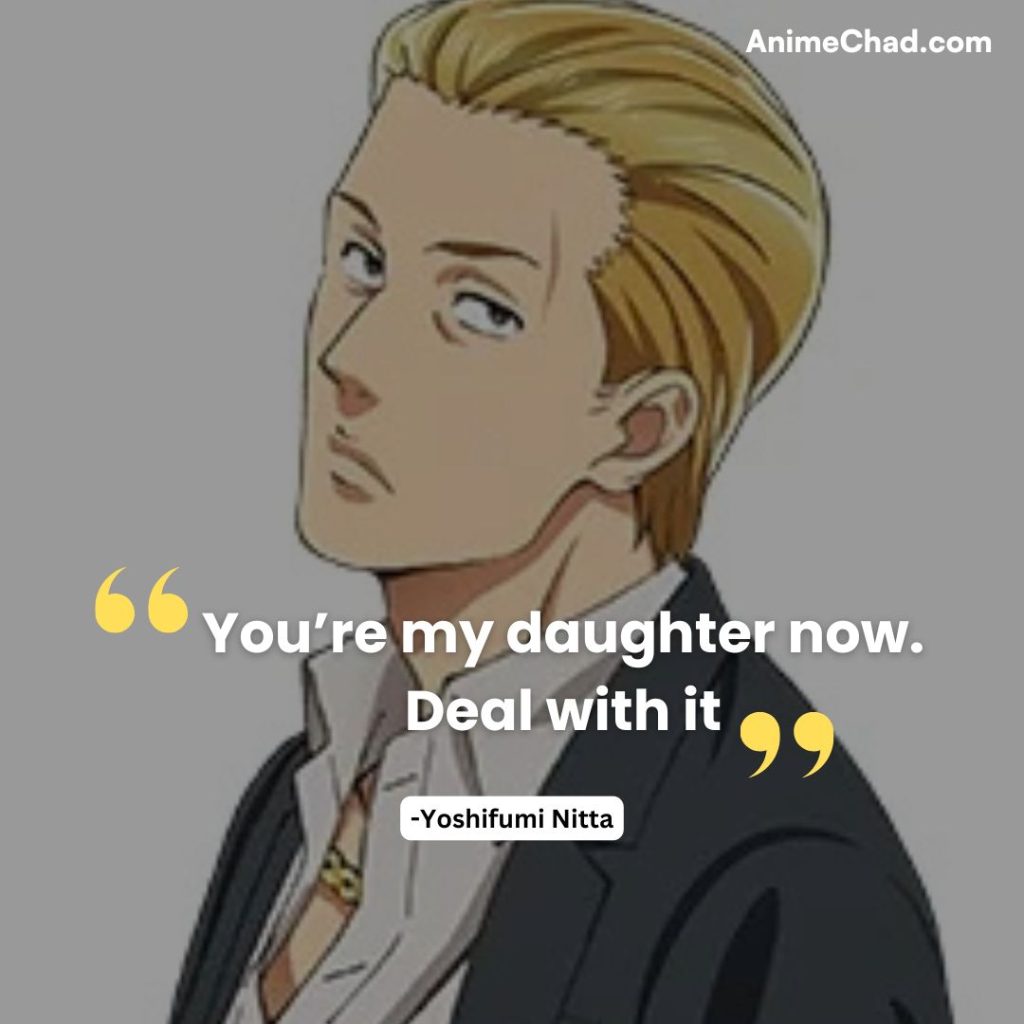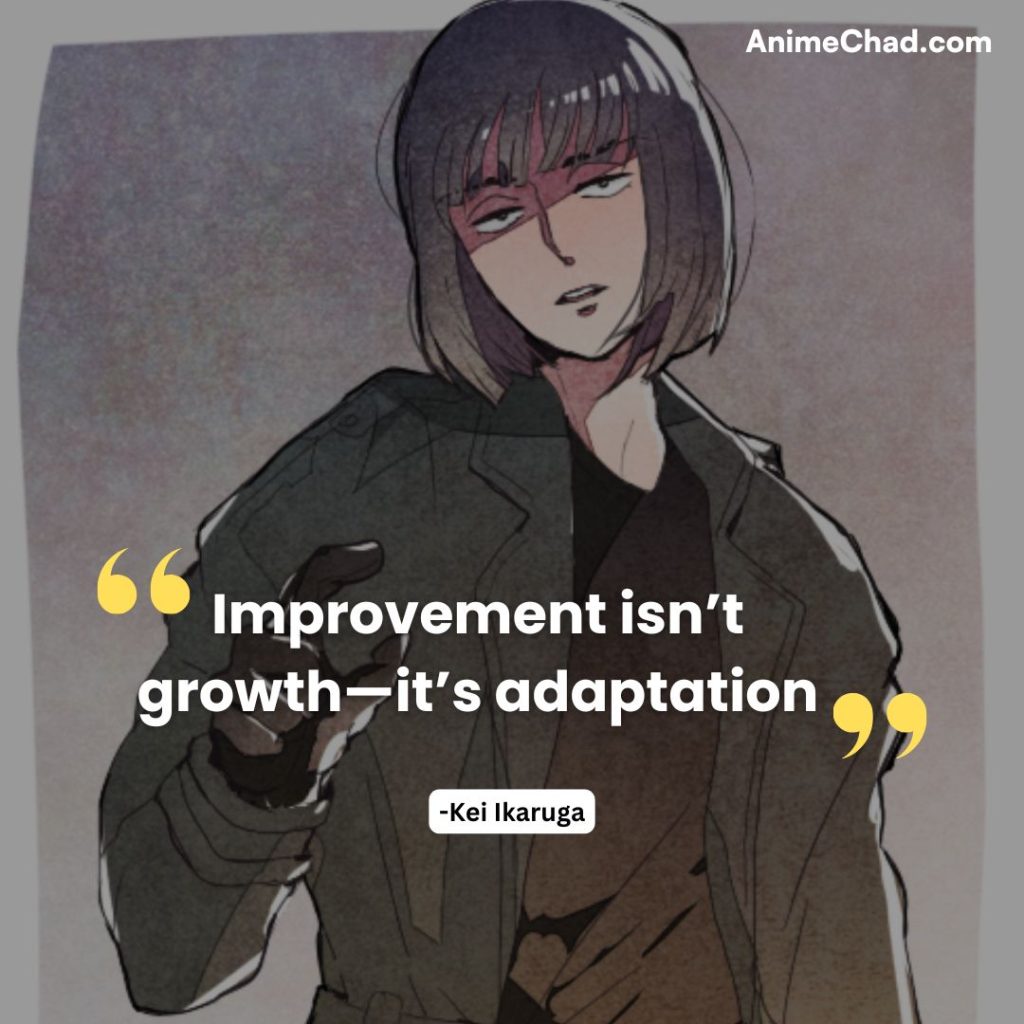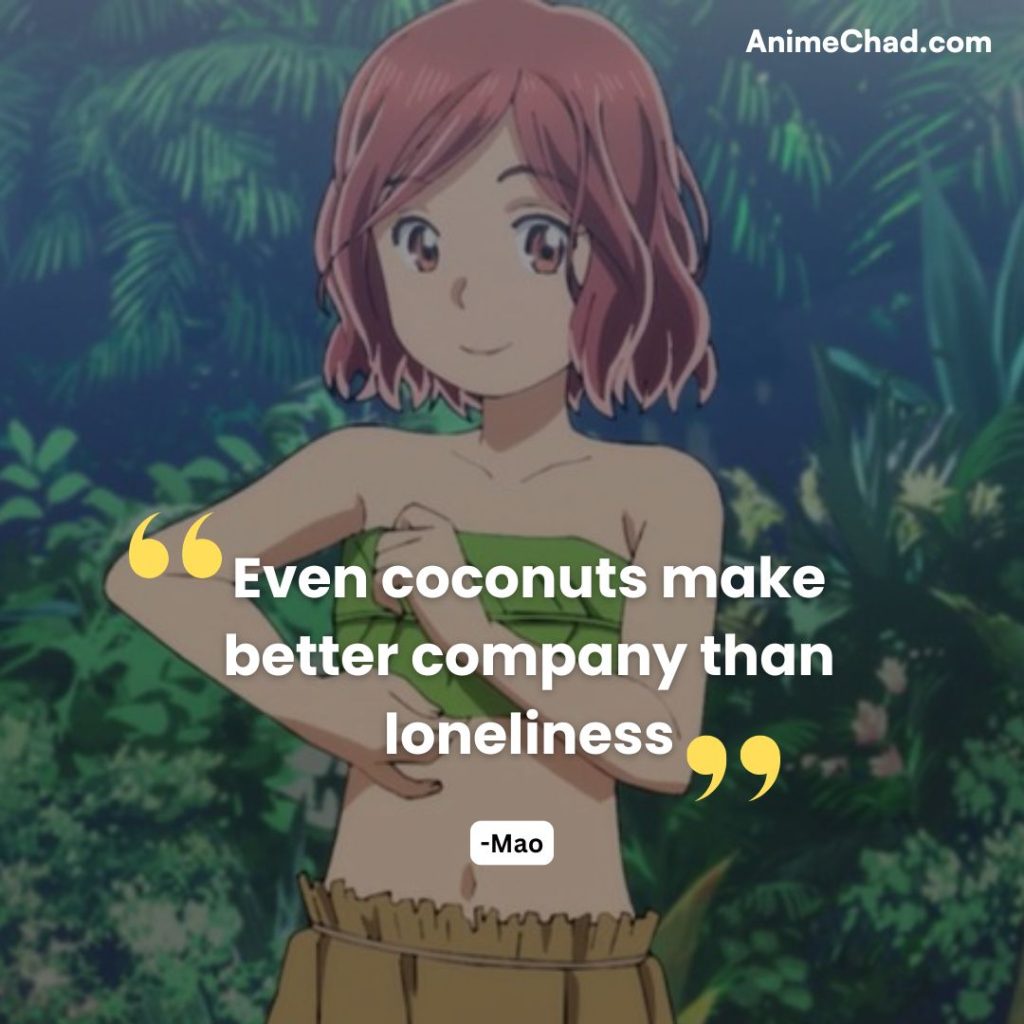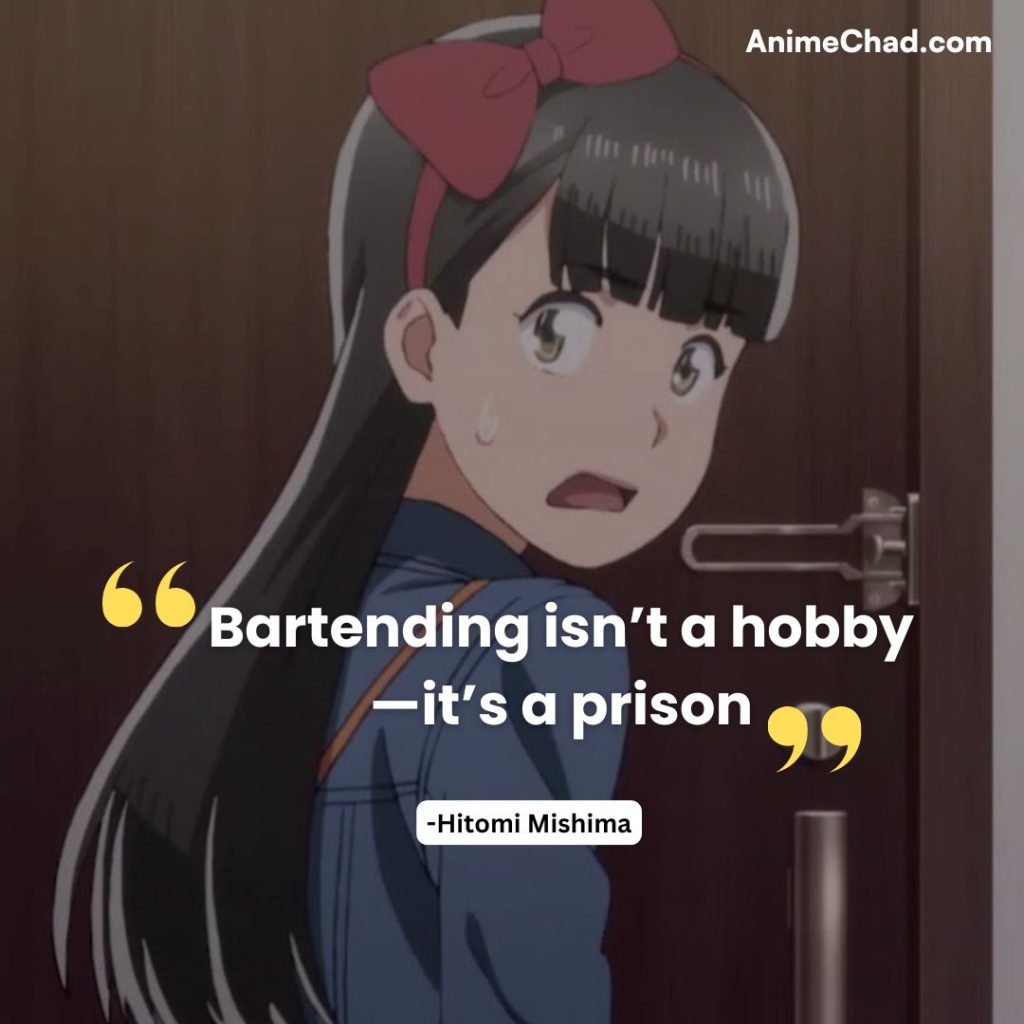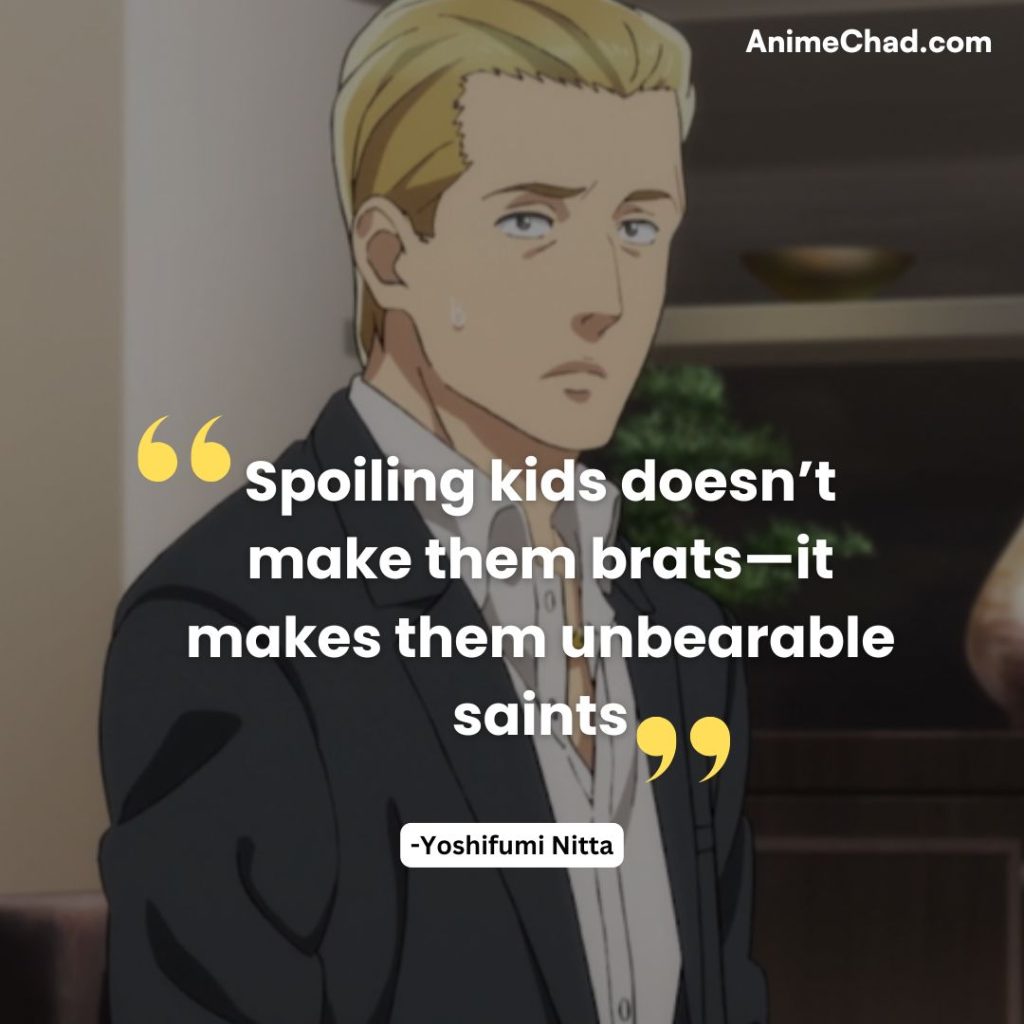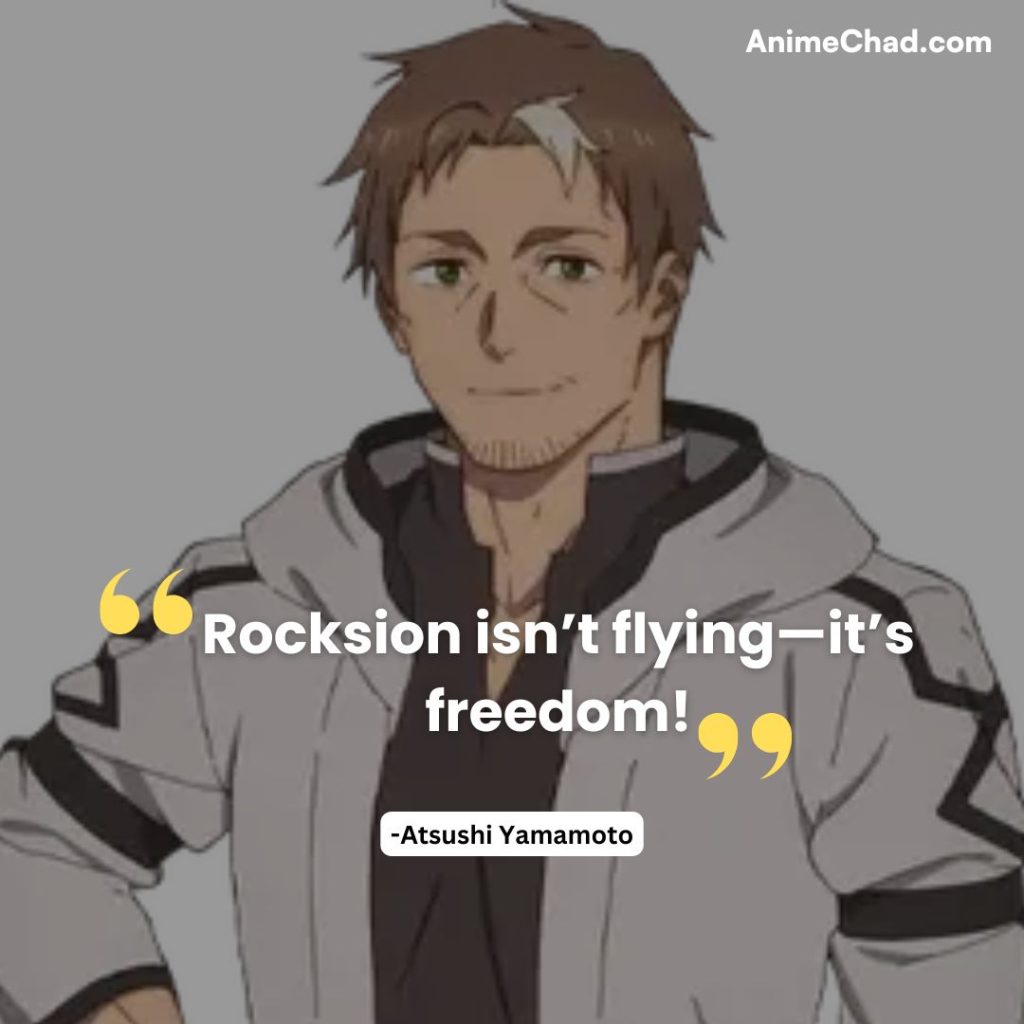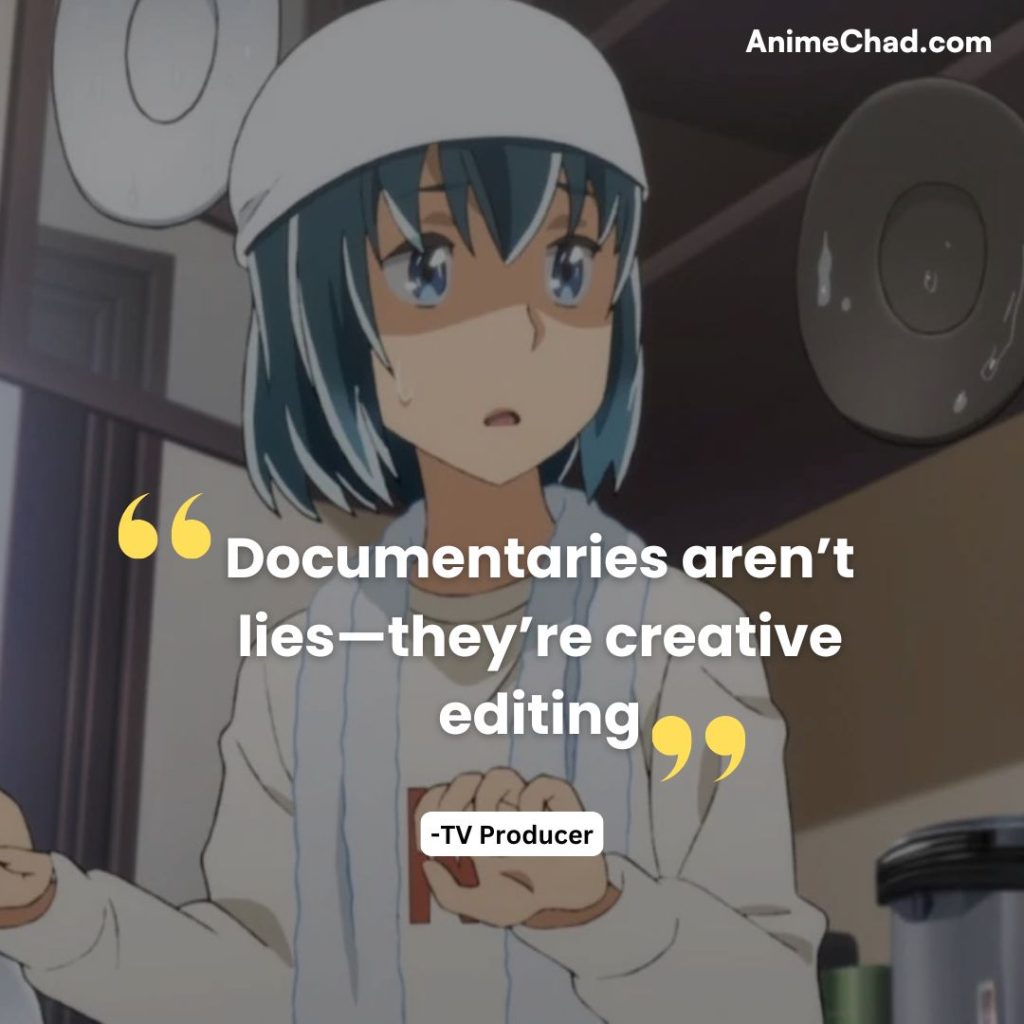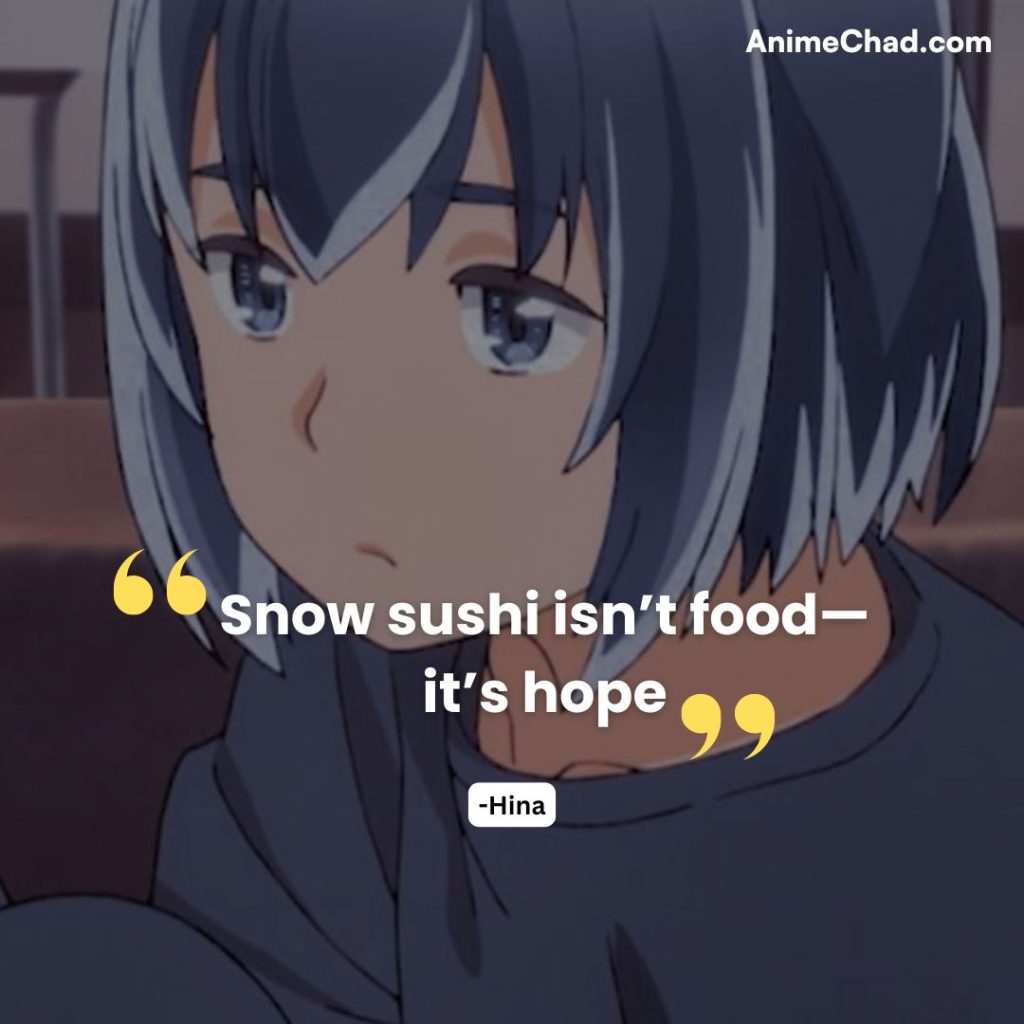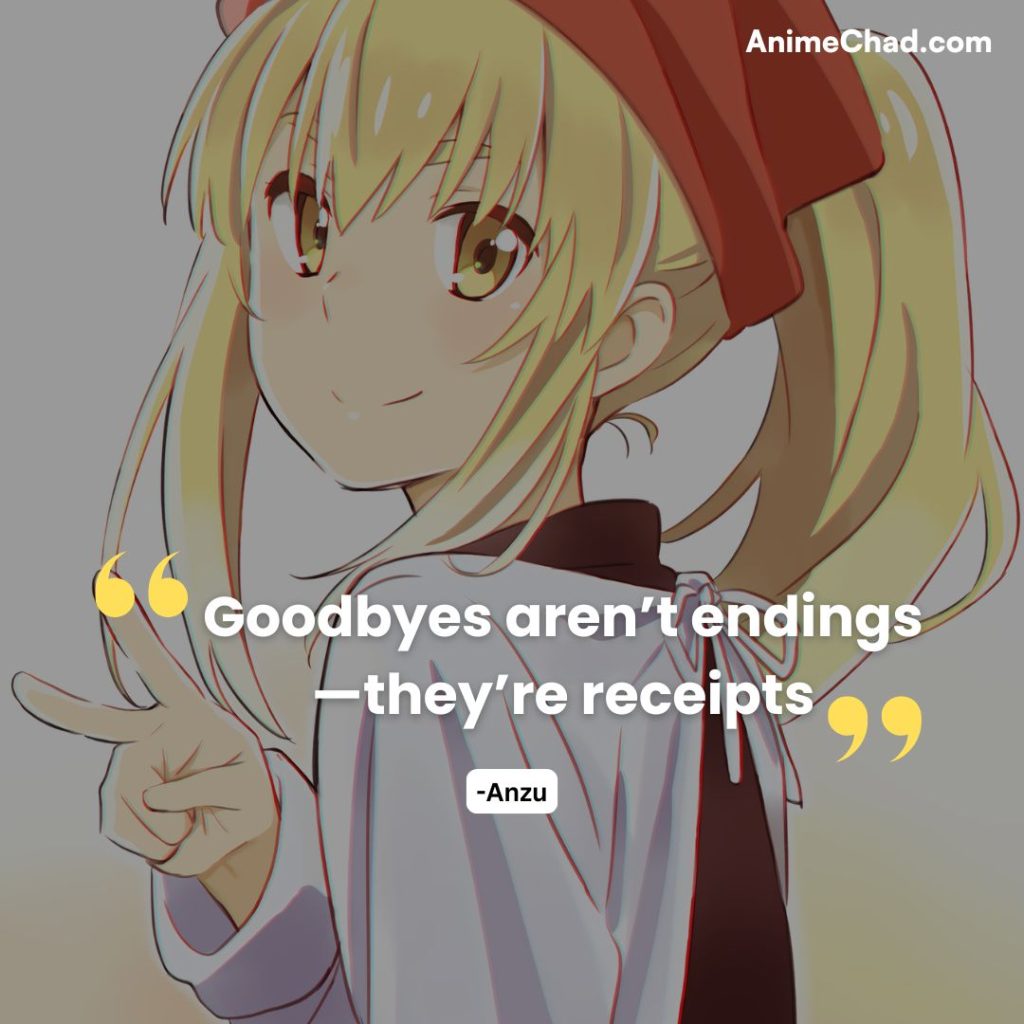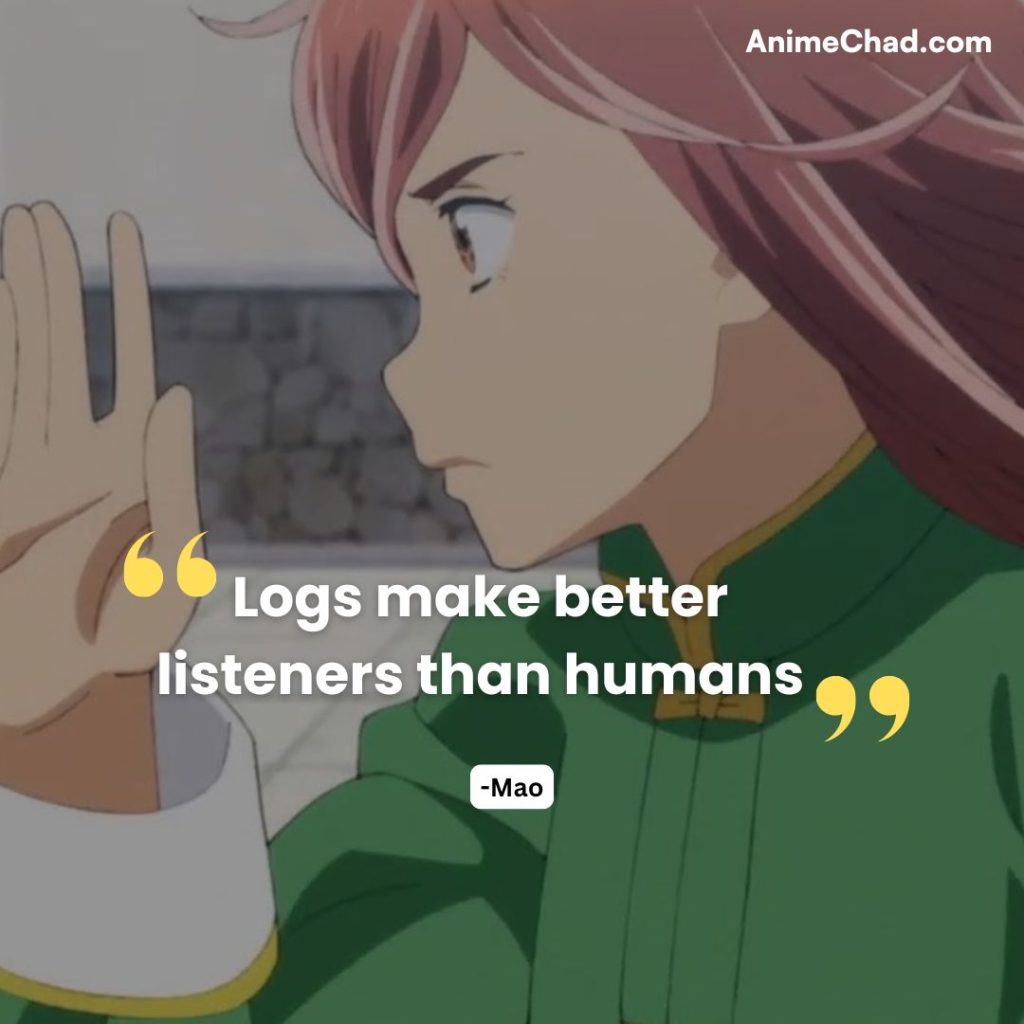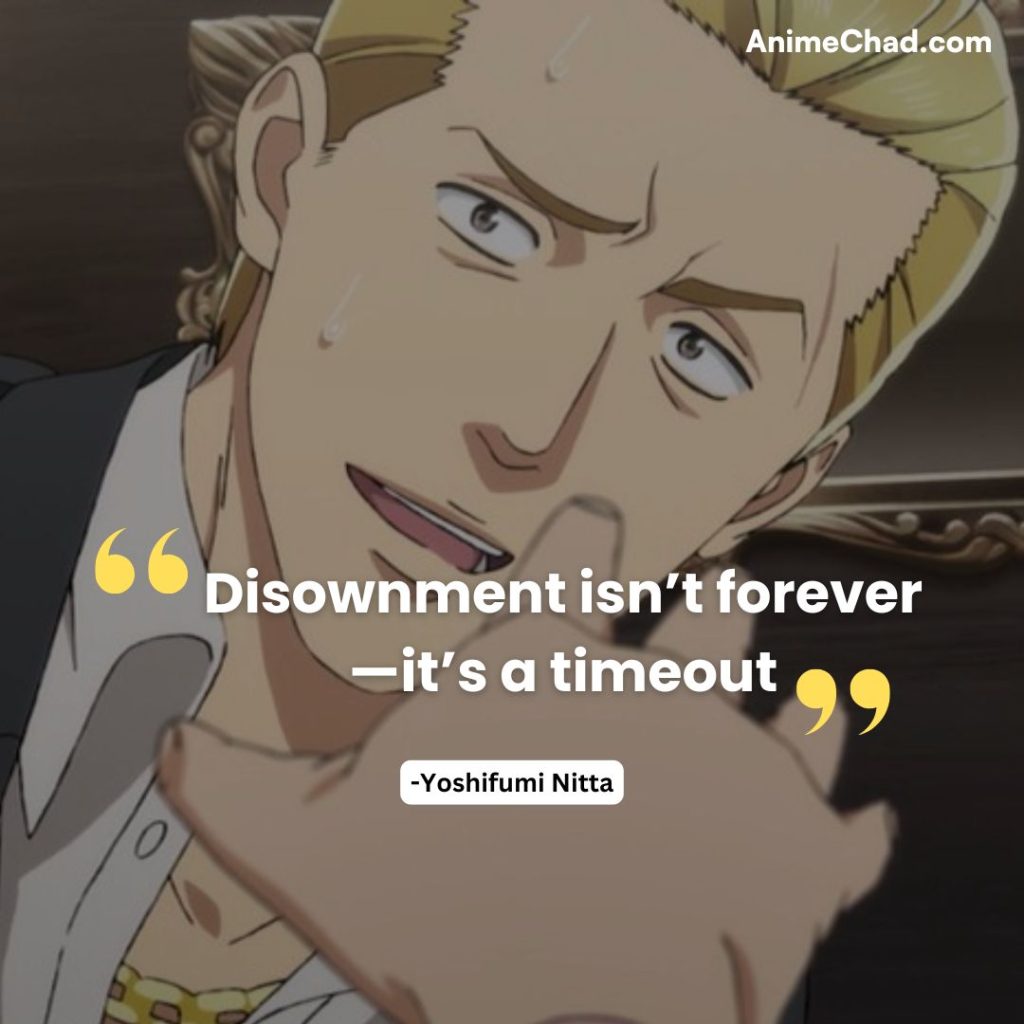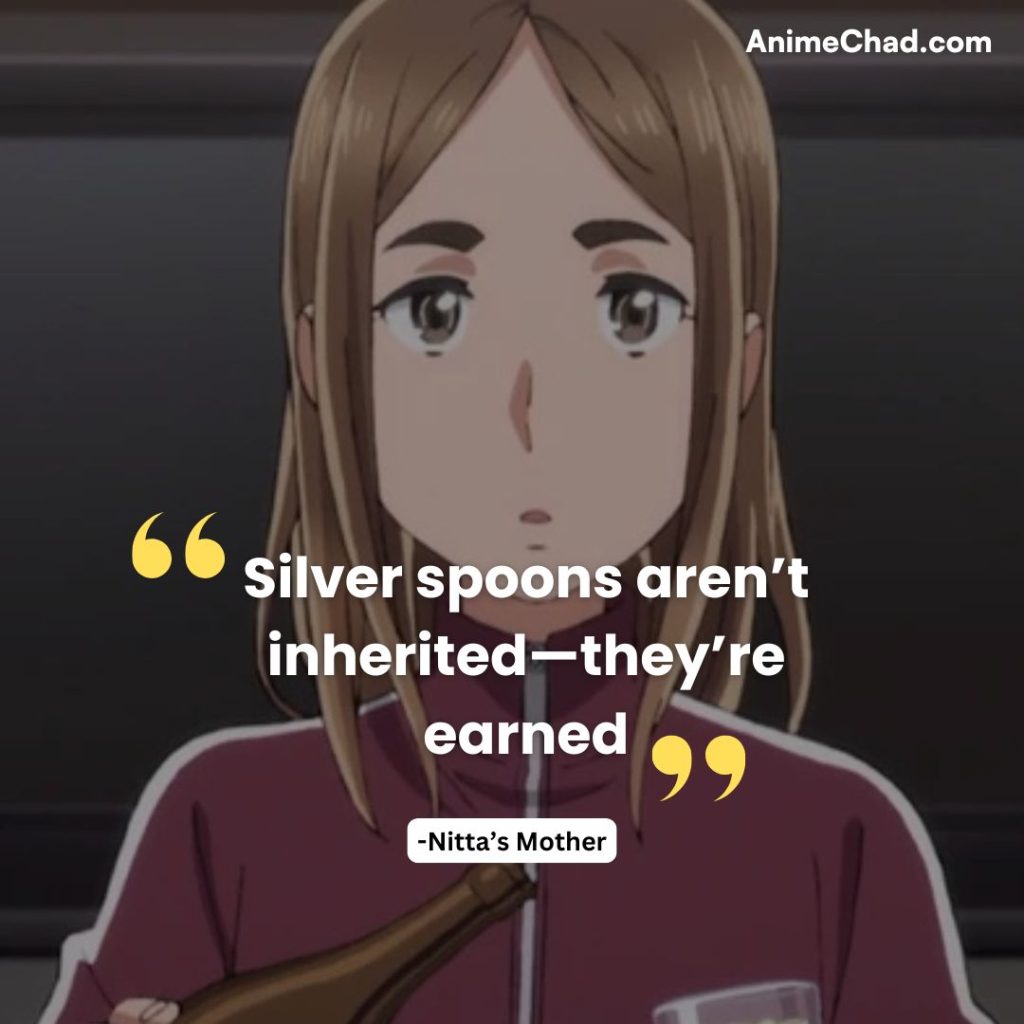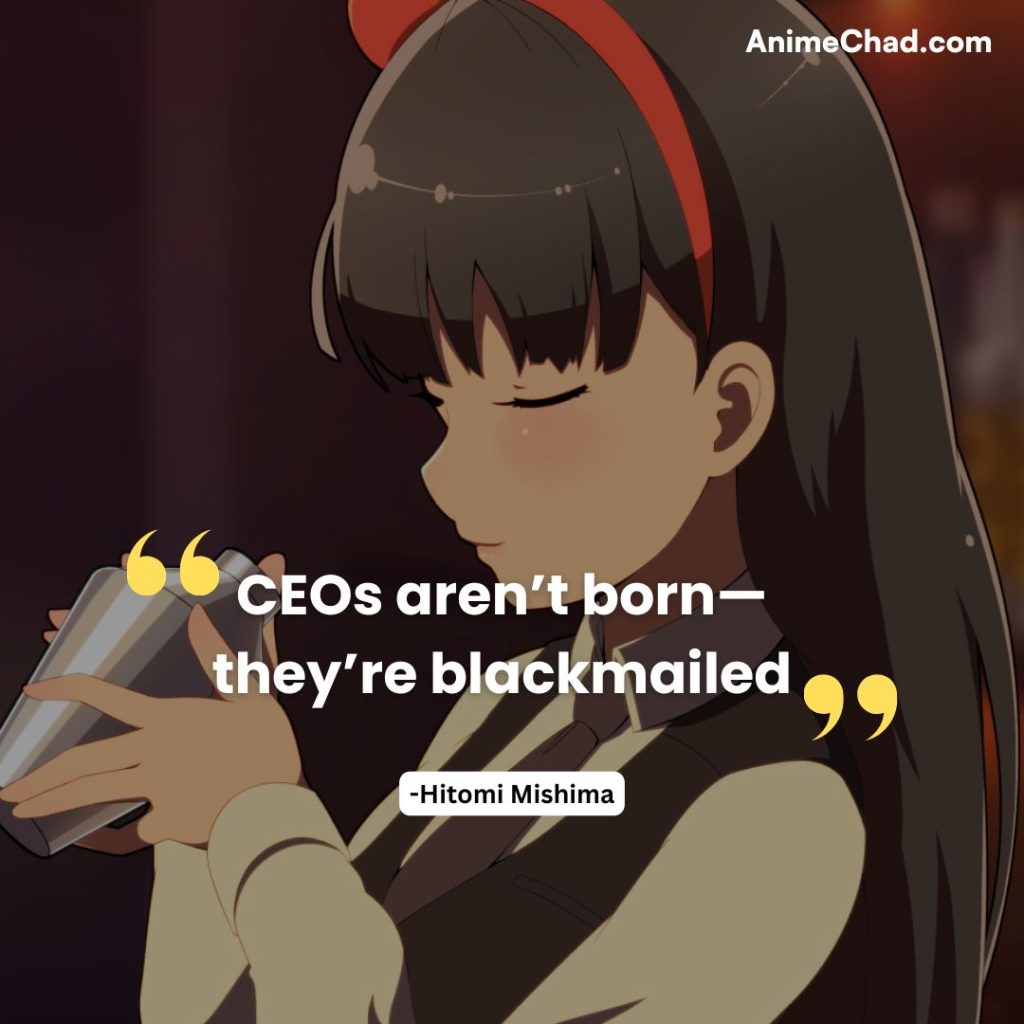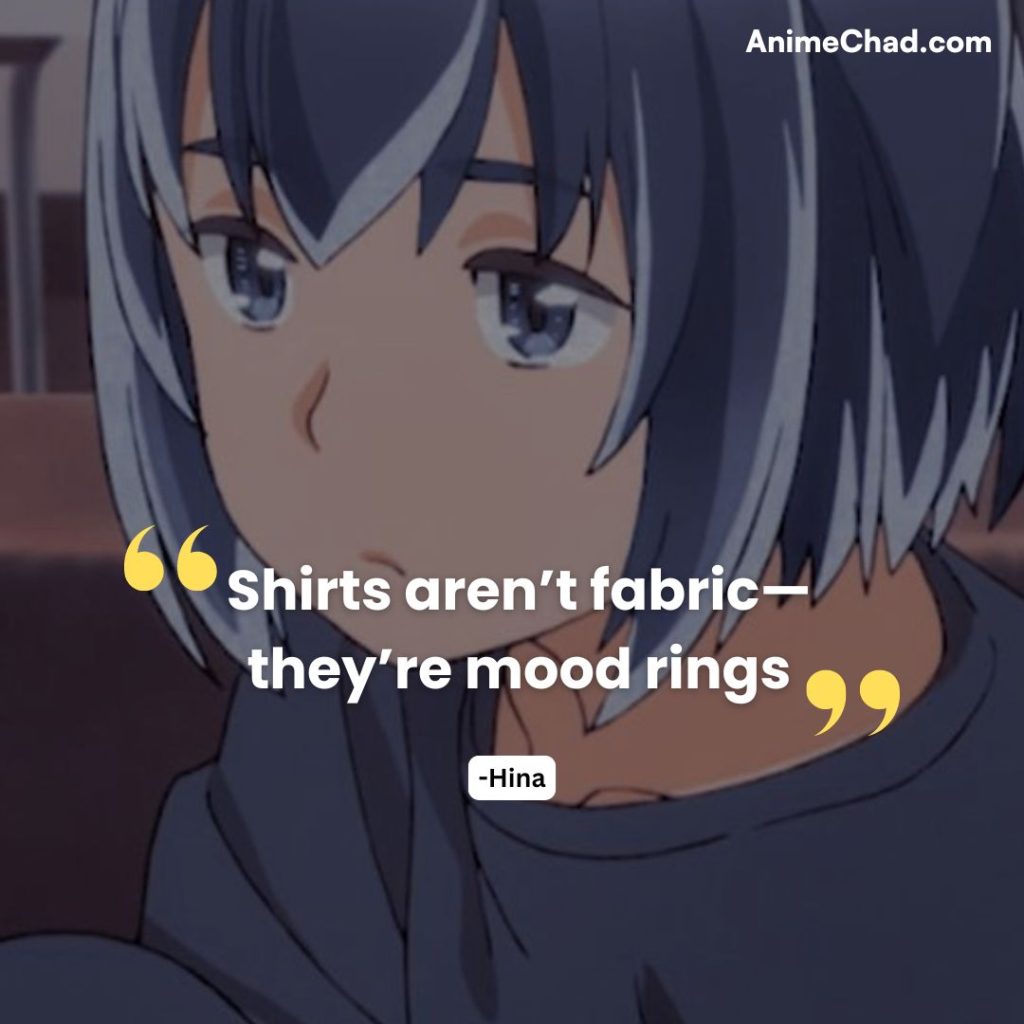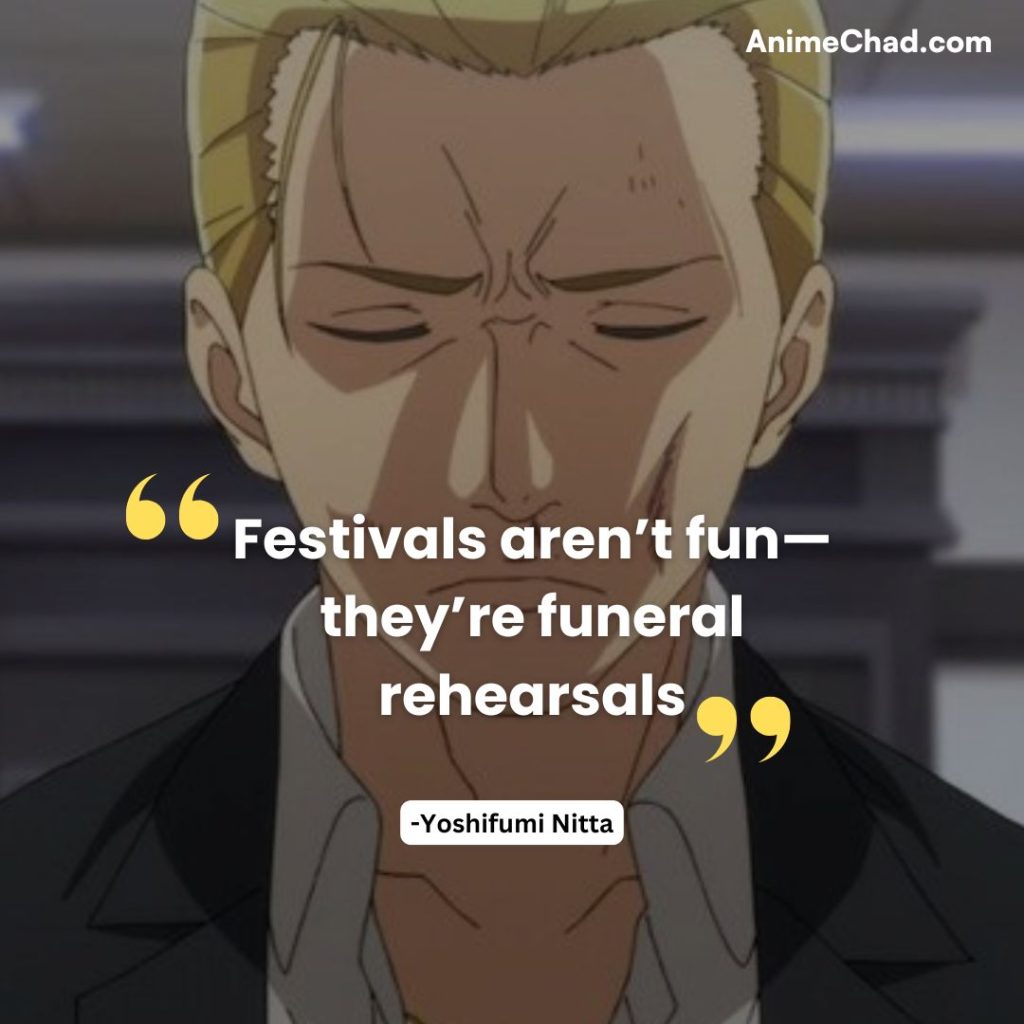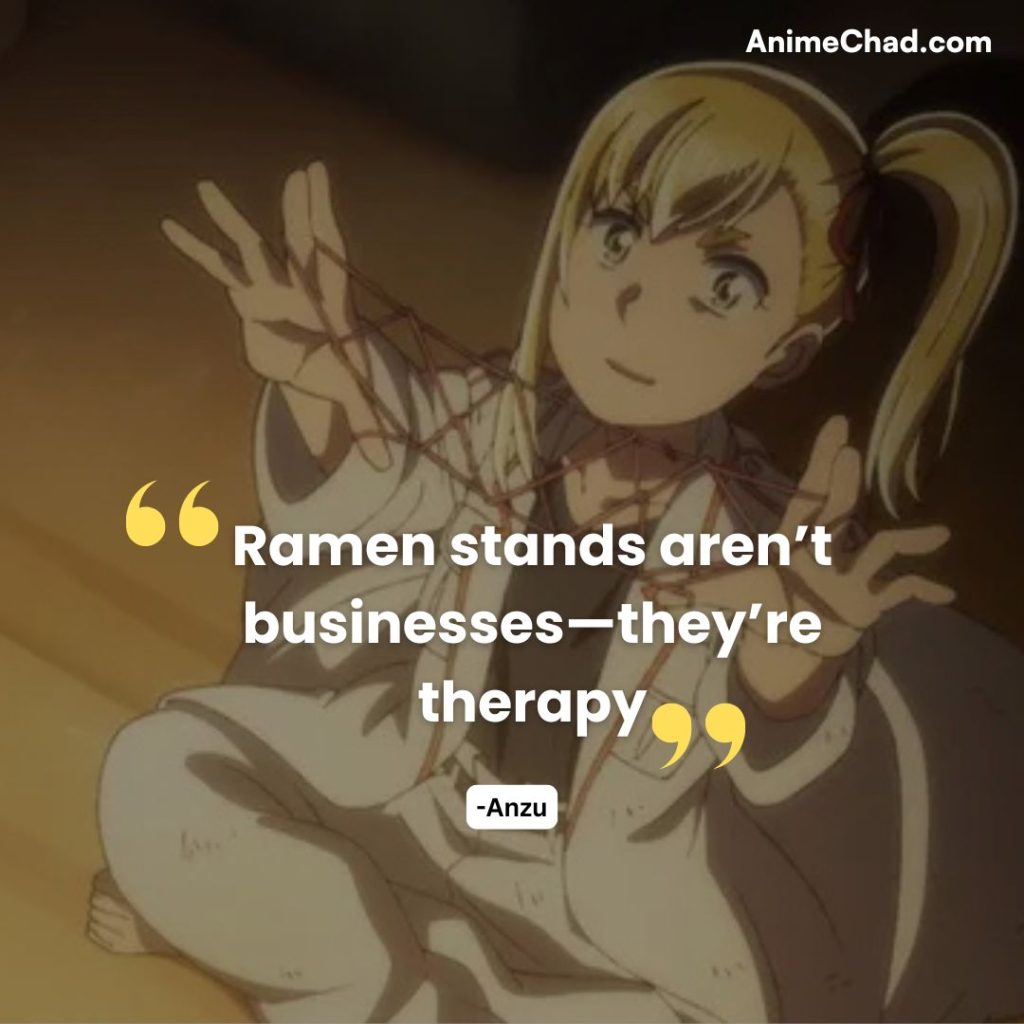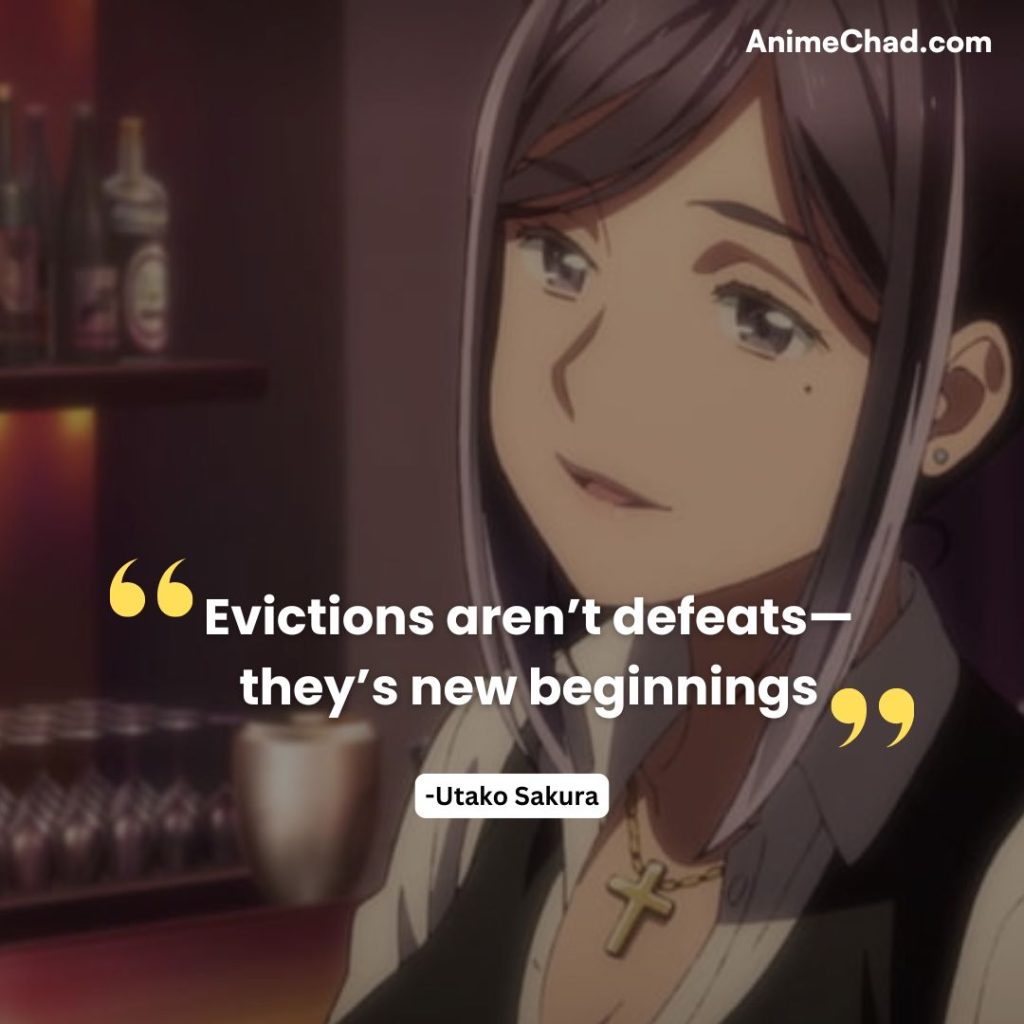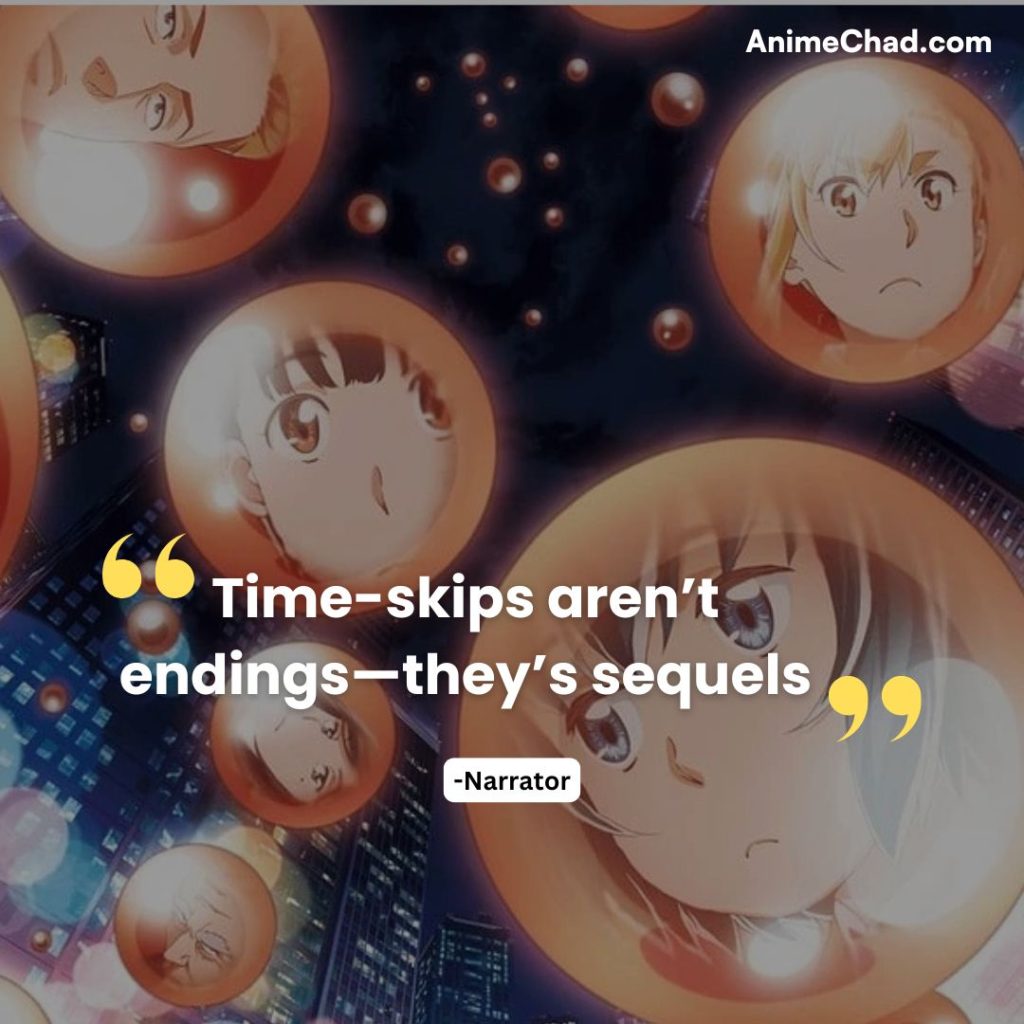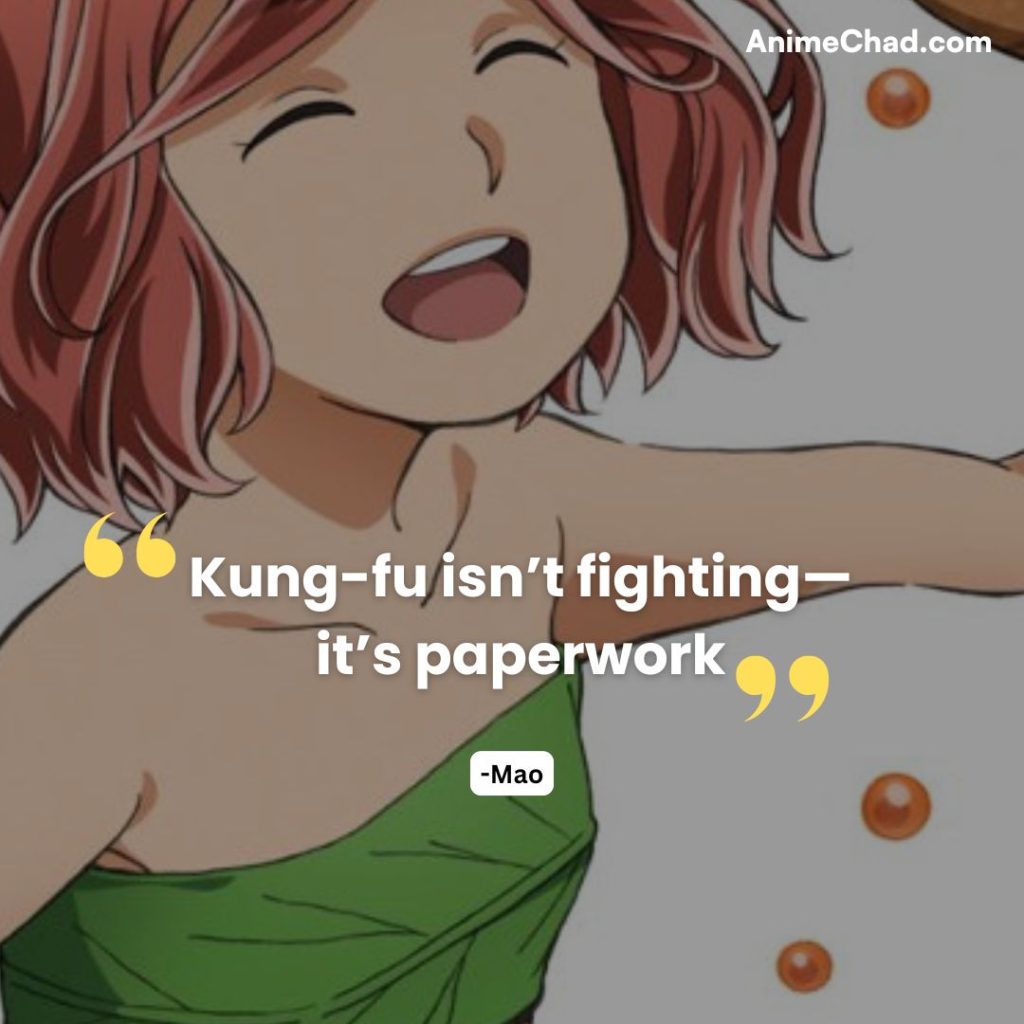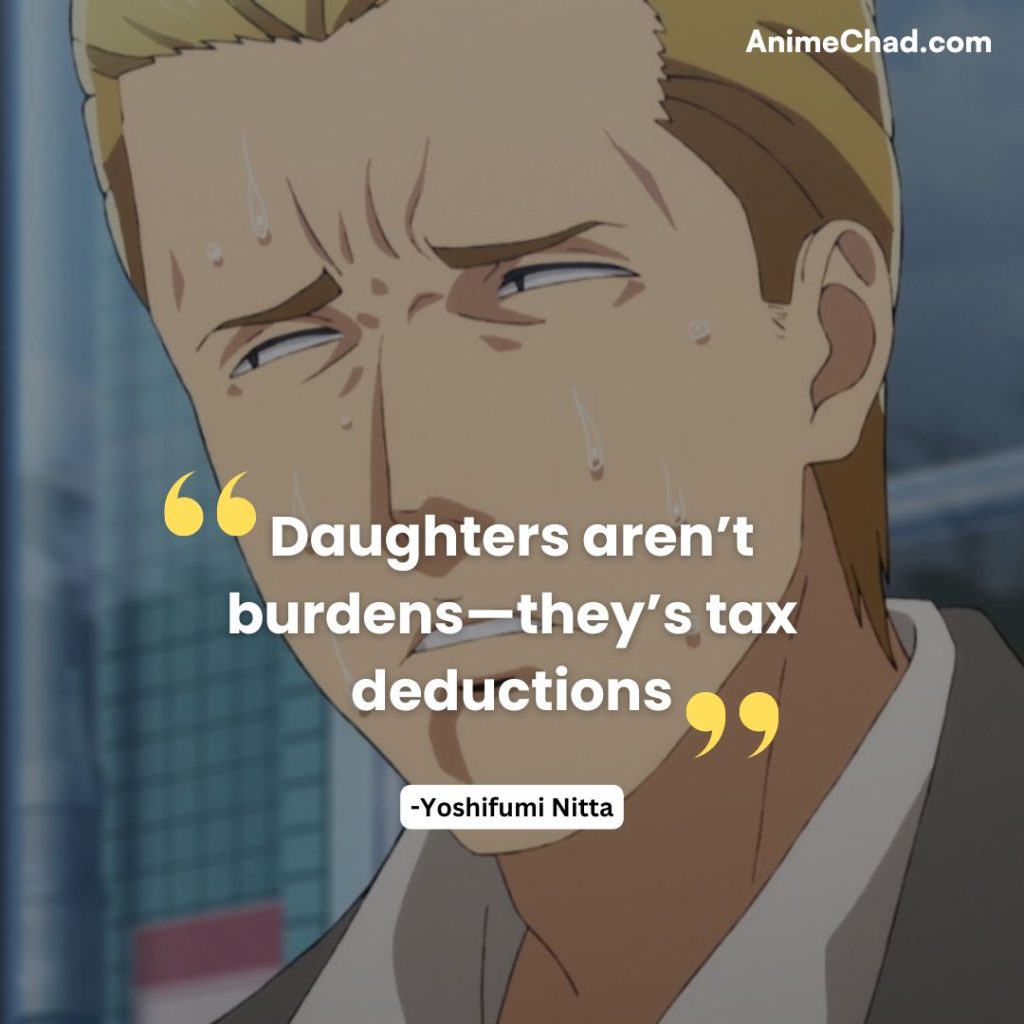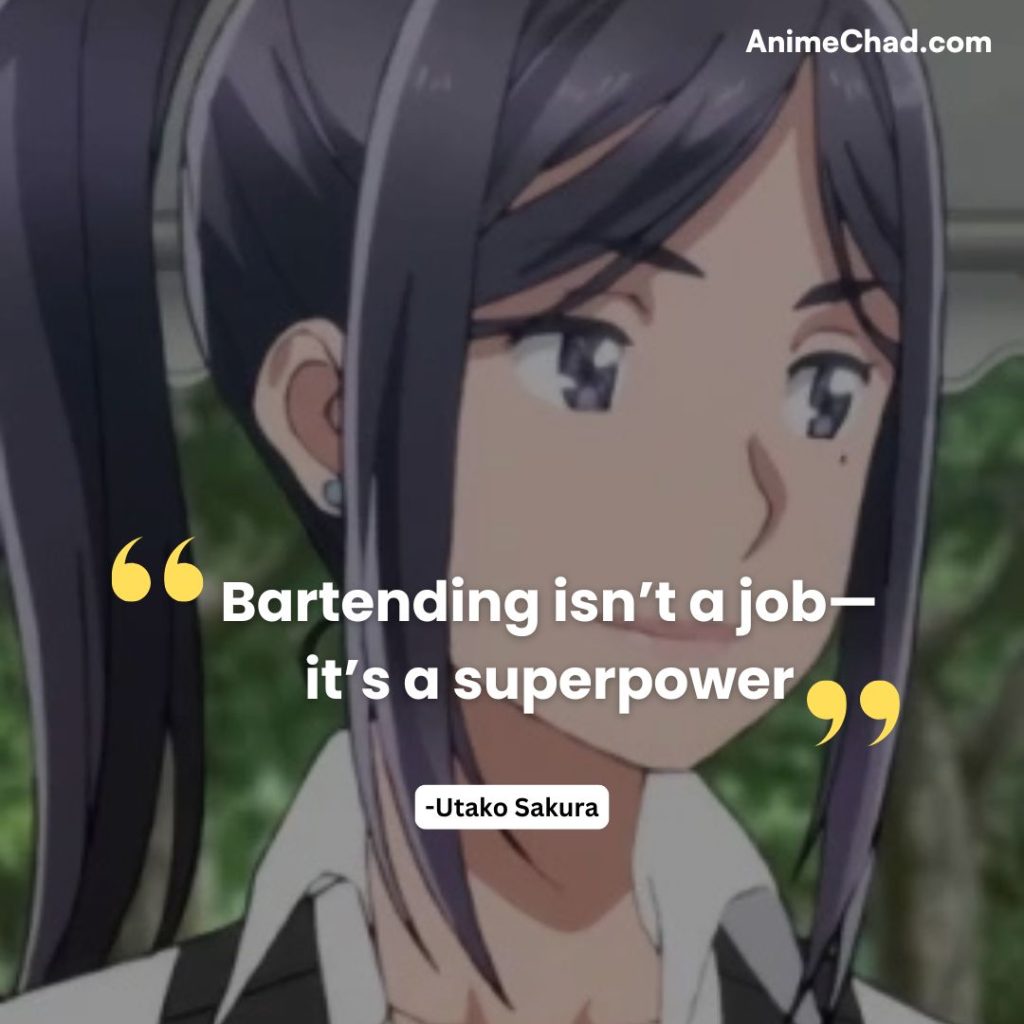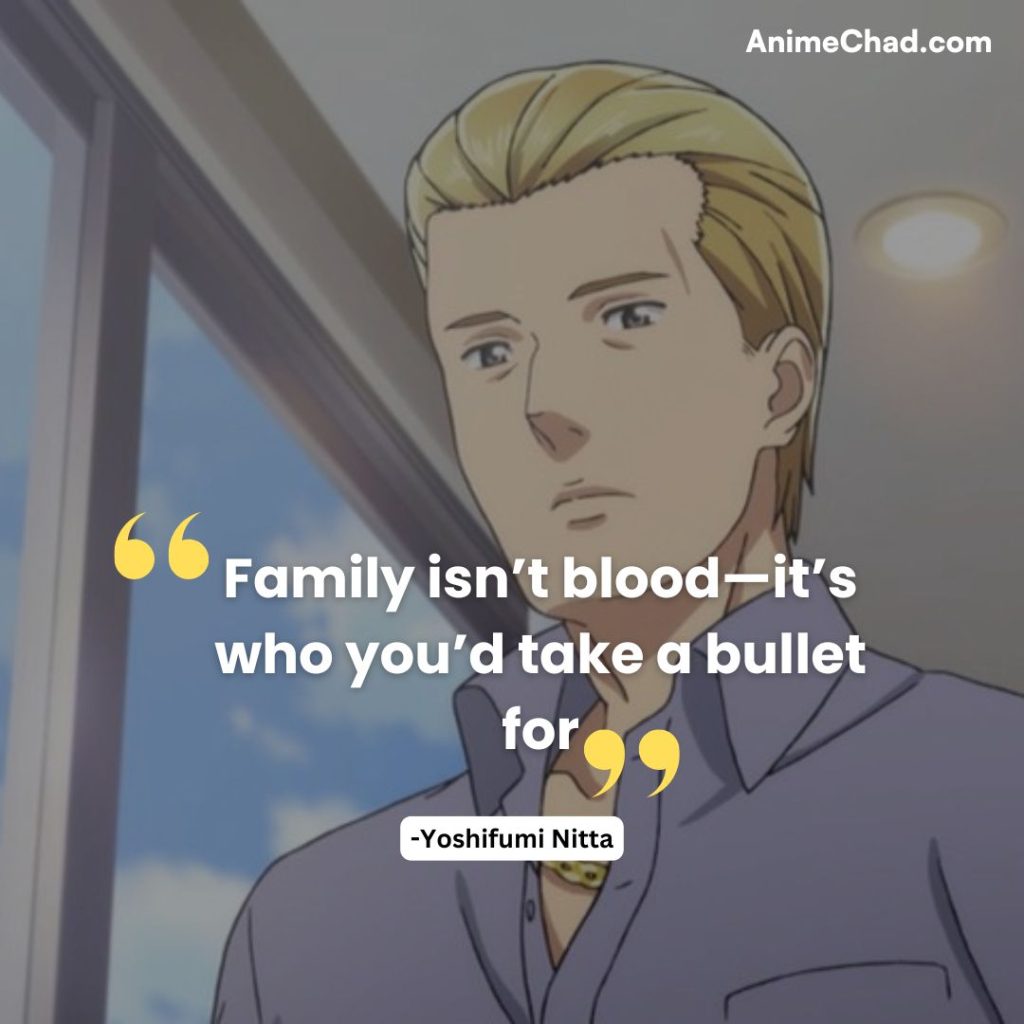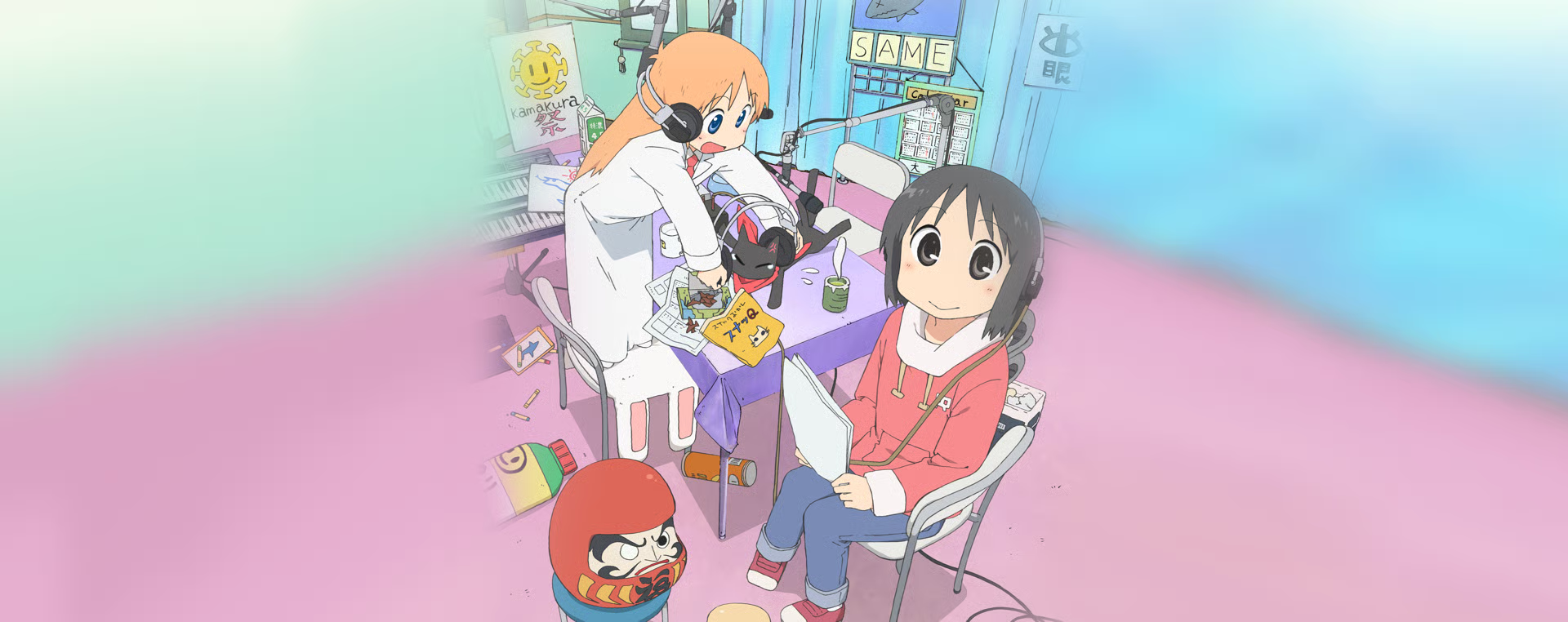Hinamatsuri follows yakuza member Yoshifumi Nitta and telekinetic girl Hina, blending absurd humor with heartfelt explorations of found family and personal growth.
The series balances chaotic antics with sincere moments of connection, celebrating resilience and unconventional bonds. This collection highlights quotes that encapsulate its unique mix of hilarity and heart.
Careful, or I’ll break your furniture
Episode 1 (Arrival of the Psychokinetic Girl!)
Hina
Hina’s deadpan threat to Nitta establishes their dynamic and the series’ absurd tone.
Homelessness isn’t about being poor—it’s about survival
Episode 3 (Hobo Life 101)
Yassan
Yassan’s lesson to Anzu underscores the show’s unexpected depth amid comedic chaos.
You’re my daughter now. Deal with it
Episode 6 (Nitta-san Has a Dandy Dad)
Yoshifumi Nitta
Nitta’s reluctant acceptance of Hina marks a pivotal moment in their father-daughter relationship.
Improvement isn’t growth—it’s adaptation
Episode 8 (And It’s The Same Old Hina)
Kei Ikaruga
Kei’s realization about Hina’s progress ties into the series’ theme of unexpected redemption.
Even coconuts make better company than loneliness
Episode 12 (Yukimatsuri)
Mao
Mao’s reflection on her island isolation highlights the show’s blend of absurdity and vulnerability.
Bartending isn’t a hobby—it’s a prison
Episode 2 (This is How You Have a Superpower Battle!)
Hitomi Mishima
Hitomi’s resigned acceptance of her fate epitomizes her tragicomic role as an overworked middle-schooler.
Spoiling kids doesn’t make them brats—it makes them unbearable saints
Episode 11 (A Man Thirsty for Blood, Violence and Money)
Yoshifumi Nitta
Nitta’s failed attempt to corrupt Anzu showcases her unshakable integrity.
Rocksion isn’t flying—it’s freedom!
Episode 4 (Disownment Rock n’ Roll Fever)
Atsushi Yamamoto
Atsushi’s obsession with Hina’s levitation gag symbolizes the series’ celebration of whimsy.
Documentaries aren’t lies—they’re creative editing
Episode 11 (A Man Thirsty for Blood, Violence and Money)
TV Producer
The fabricated interview skewers media sensationalism while humiliating Nitta.
Snow sushi isn’t food—it’s hope
Episode 12 (Yukimatsuri)
Hina
Hina’s makeshift meal for her stranded friends merges absurdity with heartfelt ingenuity.
Goodbyes aren’t endings—they’re receipts
Episode 3 (Hobo Life 101)
Anzu
Anzu’s tearful farewell to her homeless family underscores the cost of growth.
Logs make better listeners than humans
Episode 9 (Life is about Survival)
Mao
Mao’s wooden Hina puppet reflects her loneliness and the series’ surreal humor.
Disownment isn’t forever—it’s a timeout
Episode 4 (Disownment Rock n’ Roll Fever)
Yoshifumi Nitta
Nitta’s petty frustration with Hina’s messiness fuels their comedic push-pull dynamic.
Silver spoons aren’t inherited—they’re earned
Episode 6 (Nitta-san Has a Dandy Dad)
Nitta’s Mother
A metaphor for Nitta’s journey from reluctant guardian to devoted father.
CEOs aren’t born—they’re blackmailed
Episode 10 (Like a River Stream)
Hitomi Mishima
Hitomi’s accidental rise to corporate power satirizes adult hypocrisy.
Shirts aren’t fabric—they’re mood rings
Episode 8 (And It’s The Same Old Hina)
Hina
Hina’s slogan-changing shirts humorously externalize her minimal character growth.
Festivals aren’t fun—they’re funeral rehearsals
Episode 9 (Life is about Survival)
Yoshifumi Nitta
Nitta’s morbid celebration of his promotion encapsulates his comedic pessimism.
Ramen stands aren’t businesses—they’re therapy
Episode 7 (Anzu Is a Greeter Now)
Anzu
Anzu’s ramen cart symbolizes her journey from homelessness to purpose.
Evictions aren’t defeats—they’s new beginnings
Episode 6 (Nitta-san Has a Dandy Dad)
Utako Sakura
Utako’s pragmatic support for Anzu reveals her hidden compassion.
Ghosts aren’t real—they’re bad CGI
Episode 5 (Three Heads Are Better Than One)
Mami Shinjou
Mami’s delusional paranormal obsession fuels recurring gags.
Time-skips aren’t endings—they’s sequels
Episode 12 (Yukimatsuri)
Narrator
The finale’s leap forward teases growth while maintaining chaotic continuity.
Kung-fu isn’t fighting—it’s paperwork
Episode 12 (Yukimatsuri)
Mao
Mao’s bureaucratic battle to leave China mirrors the series’ absurd stakes.
Daughters aren’t burdens—they’s tax deductions
Episode 1 (Arrival of the Psychokinetic Girl!)
Yoshifumi Nitta
Nitta’s initial resentment of Hina contrasts his eventual devotion.
Bartending isn’t a job—it’s a superpower
Episode 2 (This is How You Have a Superpower Battle!)
Utako Sakura
Utako’s manipulation of Hitomi underscores the show’s darkly comedic edge.
Family isn’t blood—it’s who you’d take a bullet for
Episode 6 (Nitta-san Has a Dandy Dad)
Yoshifumi Nitta
Nitta’s definition of family crystallizes the series’ core theme.
Why These Quotes Resonate
These lines embody Hinamatsuri’s genius in juxtaposing slapstick humor with sincere emotional beats.
From Hina’s deadpan threats to Anzu’s hard-earned wisdom, each quote reinforces the series’ celebration of found family and resilience.
Their balance of absurdity and heart makes them unforgettable anchors to this chaotic, heartfelt journey.


